What did you used to spend your pocket money on? I clearly remember the excitement of going to the corner shop and getting as many handfulls of strawberry shoelaces and cola ice-pops that my 50p could buy. Kids these days are far less likely to buy sweet treats: confectionary sales have stangated as a new ‘vogue’ has hit the schools . 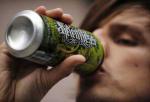 Push-pops are most definately ‘out’ and the new cool is ‘energy drinks‘.
Push-pops are most definately ‘out’ and the new cool is ‘energy drinks‘.
Despite the the recession, sales of caffeine-fuelled fizzy-pop are at an all time high; one in every five pounds spent on soft drinks is now an ‘energy drink’. Brands such as ‘Monster‘, ‘Rockstar‘ and ‘Red Bull‘ have had unprecedented successes; reaping the rewards from sponsorship deals with racing events, rock bands and extreme sports activities. This machismo image attracts a young (typically male) audience and over 30% of under 12-17 year olds now regularly buy them.
Why bother?
Most ‘energy drinks’ don’t taste particularly nice, but it’s clearly not the taste that most people buy them for. Each morning on the way to work I go past swarms of uniformed school children, many of them clutching one or two cans of energy drink. They’re not on their way to an extreme sports event but are enjoying the ‘caffeine-buzz’ that will propel them through their day. A typical small can of Red Bull has the caffiene equivalent of 3 cups of coffee, and the sugar content of a Snicker’s bar! ‘Monster’ and ‘Rockstar’ come in cans double the size. Could this mega-dose of caffeine be the closest thing to our kids get to a legal high?After a few hours, the ‘high’ wears off and caffeine withdrawal starts (tireness, irritablility and difficulty concentrating) - time for that lunchtime can of ‘Monster’!
Is there a problem with that?
Energy drinks completely devoid of any nutritional value and the sugar contributes to teeth decay. But the main concern is the high concentration of caffeine. Most cans boast also about added ingredients (such as ‘Taurine’ and ‘Ginseng’) but essentially they are essentially ‘space dust’ because their stimulatory effect is negligable compared to caffeine.
Caffeine does has proven health benefits; and if you missed it first time round - then check out my previous blog on why coffee is good for you. However, these health benefits are only recognised in adults and there is no reliable research at the moment on the effects of super-strength energy drinks. We do know that caffeine is addictive and over time increased amounts are required to get the same effect (like most illegal drugs). I was told by one teacher friend of one student being dependent on energy drinks and drank 2 cans of ‘Monster’ for breakfast! That’s a staggering 6 cups of coffee washed down with a quarter of a pound of sugar!
Younger people handle caffeine differently; although many teenagers look like adults, their bodies cannot process the stimulant as well and it stays circulating in the blood for longer. The effect on adolescent behaviour from high doses of caffeine is profound. In young adults and children it is also more likely to trigger anxiety, headaches, hyperactivity and chest pains and this is the experience of many school and college teachers. In high doses, caffeine supresses the appetite, leads to poor nutrition and disrupts normal sleeping; all of which are essential for normal brain and body growth.
Bob Tait, from Drug Education UK, recently cautioned medical professionals that caffeine addiction in school children is an increasing problem and that children will down energy drinks before school, at break and at lunch time.
Caffeine Addict?
Anyone that is dependent on caffeine (adults and children) may find kicking the habit difficult: Try reading this Autstalian teenagers story of going cold turkey. Further advice and support is available at the bottom of the page if you’re living for your next Red Bull hit.
Should energy drinks be banned?
Many schools and colleges operate an on-site energy drink ban but there are no legal restrictions on their sale, and very few shops refuse to sell them to under 18’s.
Should ‘energy drinks’ be banned? Should an age limit be applied? Present scientific research indicates that caffeine is unlikely to have long-term health effects on children; but it’s still largely an unknown as caffeine has never regularly consumed by under 18’s in such a high concentration before. Personally, I’m in a dilemma: I love coffee and fizzy drinks (although I usually opt for lower caffeine varieties) so is it right to set an age-limit on energy drinks? Would banning energy drinks be a ‘nanny state’ too far?
Over to you…
What do you think? Are you an energy drink lover or would you never touch the stuff?
.
Thanks for reading - comments and feedback are warmly welcomed!
Related Post: The Virtues of Coffee Drinking!
Links:
Need support or advice on kicking a habit? See this page for a list of links for giving up: http://www.wiltshire.ac.uk/customer_services/counselling_and_support/self_help_information/drugs_alcohol.asp
Want to know more about how much caffeine is in your favourate beverage? Energy Fiend has the answers: http://www.energyfiend.com/caffeine-content-uk-europe-drinks
If you want to know how much sugar is in your sweets: http://www.marsnutrition.co.uk/
References:
Dennis S. Charney, George R. Heninger, and Peter I. Jatlow
Increased Anxiogenic Effects of Caffeine in Panic Disorders
Arch Gen Psychiatry, Mar 1985; 42: 233 - 243.
F. X. Castellanos, J. L. Rapoport, Effects of caffeine on development and behavior in infancy and childhood: a review of the published literature, Food and Chemical Toxicology, Volume 40, Issue 9, September 2002, Pages 1235-1242 (http://www.sciencedirect.com/science/article/B6T6P-45JY9X2-3/2/d2522936e766a739e653b2f544668217)
Gail A. Bernstein, Marilyn E. Carroll, Paul D. Thuras, Kelly P. Cosgrove, Megan E. Roth, Caffeine dependence in teenagers, Drug and Alcohol Dependence, Volume 66, Issue 1, 1 March 2002, Pages 1-6
(http://www.sciencedirect.com/science/article/B6T63-453WKYV-1/2/43ff048efc13fd3513517446458e1424)
Mintel (2009) Sports and Energy Drinks UK July 2009. London: Mintel
T. H. Huang, R. S. Yang, S. S. Hsieh, S. H. Liu, Effects of caffeine and exercise on the development of bone: a densitometric and histomorphometric study in young wistar rats, Bone, Volume 30, Issue 1, January 2002, Pages 293-299, (http://www.sciencedirect.com/science/article/B6T4Y-44W2SWK-1M/2/75c7cabdaec684d27d0e79e301e16ffb)

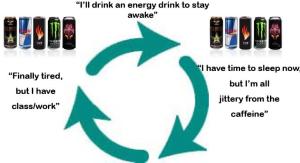

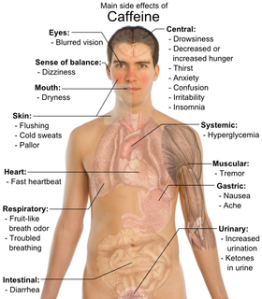



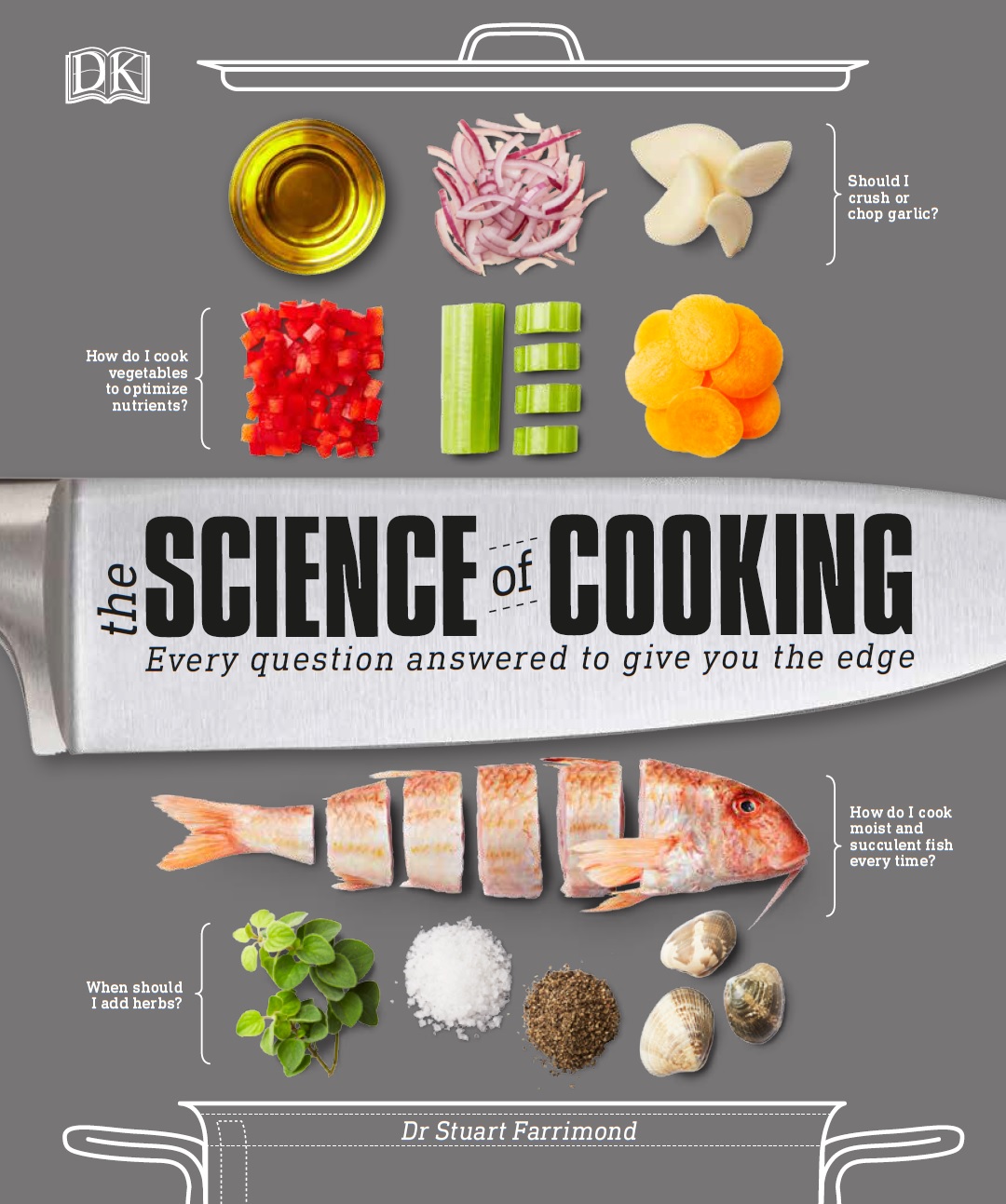



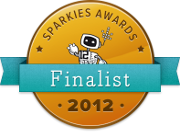
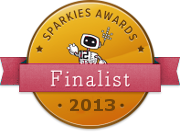
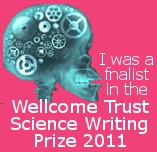


Discussion
Trackbacks/Pingbacks
Pingback: Coffee - Drink Up! The virtues of coffee drinking… « Doctor Stu's Science Blog - April 7, 2011